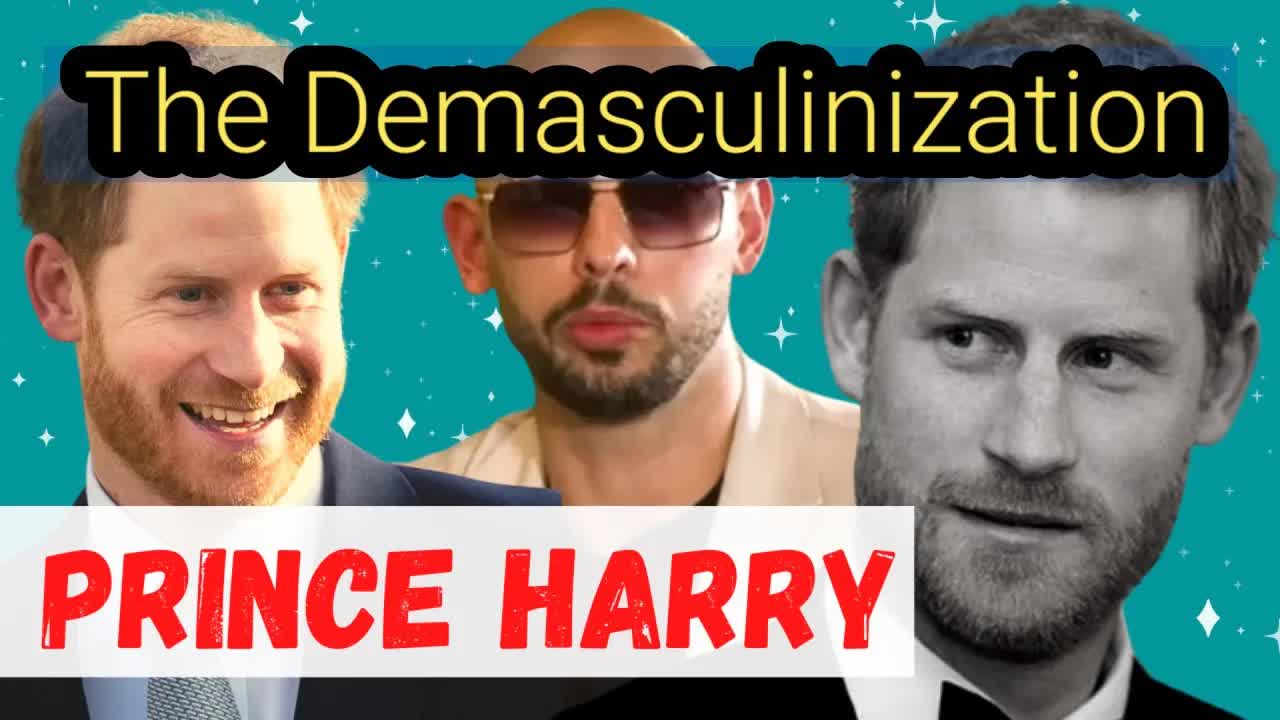In recent discussions surrounding Prince Harry, there’s a growing sentiment that he has undergone a significant transformation, one that many perceive as a form of demasculinization.
It seems that Harry may not fully grasp the extent to which this shift has affected him.
Having lived abroad myself, I can relate to that initial thrill of experiencing new cultures and environments.
However, the novelty often gives way to the mundane realities of life, revealing how out of place one can feel in unfamiliar surroundings.
For Harry, the stakes are considerably higher.
As a member of British royalty, his identity is intricately tied to the nation itself.
While some might argue that his royal status is less relevant today, it remains a core part of who he is.
He was born into a life steeped in tradition and duty, which shapes his existence in ways that the average person may never experience.
Unlike those who simply feel homesick, Harry’s disconnection from his homeland carries profound implications, stripping him of a sense of belonging that is deeply ingrained in his very essence.
Recently, Harry opened up about missing family gatherings and the unique bond that comes with them.
It’s fascinating to hear him express nostalgia for a life filled with royal traditions, as those experiences were once the bedrock of his identity.
Even though he has distanced himself from that world, the memories linger, and it appears he is grappling with the reality that he can no longer partake in those family rituals.
Yet, the situation is further complicated by his relationship with Meghan Markle.
Her journey from being embraced by the British public to facing considerable backlash has undoubtedly impacted Harry.
The couple’s struggles have been well-documented, and it often feels like they are navigating a minefield of public opinion.
It’s almost as if they’ve created their own storm and now find themselves trying to shield against the fallout.
Harry’s predicament raises questions about masculinity in today’s world.
Influential figures like Andrew Tate argue that men are expected to endure hardships to grow stronger.
In this context, Harry’s perceived loss of masculinity is seen as emblematic of a broader societal issue.
His situation reflects a struggle between traditional expectations of manhood and the pressures of modern relationships, particularly in the public eye.
Moreover, the dynamics within his marriage appear to play a crucial role in this narrative.
Observers note that Harry often seems to acquiesce to Meghan’s wishes, which raises eyebrows about his own agency.
The expectation for him to assert his identity and values seems to clash with the reality of his current life, leading to a sense of discomfort among those who follow their story.
Interestingly, while King Charles has extended an invitation for Harry and Meghan to attend the coronation, it’s hard to ignore the underlying tension.
Will they be met with cheers or jeers?
Their presence at such a significant event could serve as a litmus test for public sentiment, revealing just how far removed they are from royal approval.
It feels like a dare to step back into the lion’s den.
On another note, the absence of an invitation to the family’s traditional Christmas gathering speaks volumes.
It suggests a deliberate choice to keep certain family dynamics private, while still allowing Harry and Meghan to participate in public events.
This careful balancing act underscores the complexities of their position within the royal family and the expectations that come with it.
As Harry navigates this tumultuous landscape, he faces a profound internal conflict.
How does one reconcile the loss of their former identity with the desire to forge a new path?
It’s a daunting challenge, especially when the very essence of who he is feels stripped away.
The metaphorical n^dty of his existence may soon dawn on him, leading to a moment of reckoning.
Harry’s journey is a poignant reminder of the fragility of identity, particularly when intertwined with public life.
His struggles highlight the difficulties many face when attempting to redefine themselves in the face of overwhelming expectations.
The question remains: will he find the strength to reclaim his sense of self, or will he continue to drift in a sea of uncertainty?
Ultimately, the narrative surrounding Prince Harry serves as a reflection of broader societal issues regarding masculinity and identity.
It invites us to consider how we define ourselves in relation to others and the roles we play in our lives.
As he continues to navigate these turbulent waters, one can’t help but wonder what the future holds for him and whether he will emerge from this crisis stronger than before.










